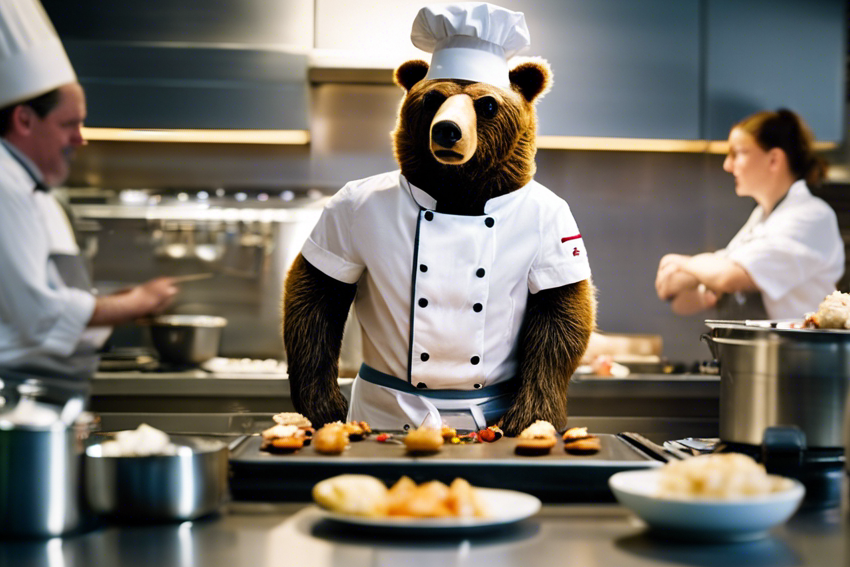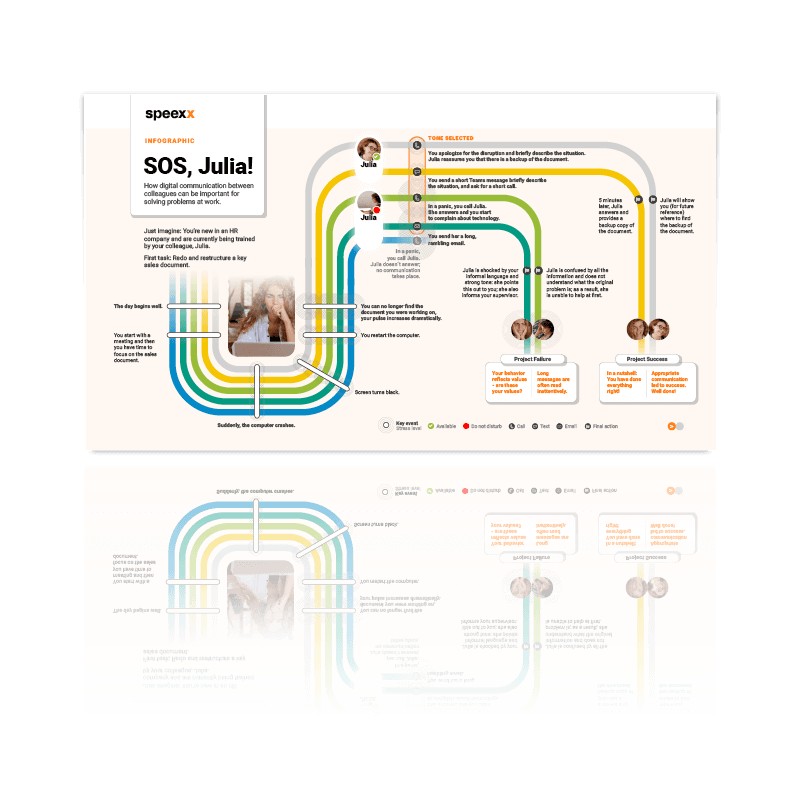“The Bear” is a Hulu series showcasing Carmy, a world-class chef, who inherits his late brother’s sandwich shop and aspires to revolutionize it. The restaurant represents more to him than just a physical space: it is a symbol of untapped potential awaiting transformation through elements such as ambiance, menu, customer service, and overall product quality. This dream fuels the series’ central conflict, touching on labor dynamics and workplace culture, his key challenge lies in altering the long-established practices of his team.

The narrative of “The Bear” mirrors a key reality in real-world organizations: meaningful change typically begins with leadership. The series transcends a mere culinary story, offering insights into the universal challenges faced by businesses in the midst of transformation.
So, let’s explore the universal change management lessons “The Bear” has to offer that are applicable to any organization currently evolving.
A Case Study in Change Management in the Workplace
Structural Changes in the Workplace
Fast-paced from the outset, “The Bear” masterfully blends humor with insightful moments. This is first evident when the protagonist, Carmy, introduces the ‘French Brigade’ system, a hierarchical structure commonly seen in haute cuisine restaurants. This shift, initially met with jest, serves as a critical moment in the series, clearly delineating the roles, responsibilities, and status of each team member.
In the realm of change management, redefining the workplace structure is pivotal. Establishing clear roles and responsibilities within a team’s hierarchy is essential for successful change implementation. “The Bear” exemplifies this process, demonstrating how structural changes, when effectively communicated and integrated, can significantly impact an organization’s dynamics and efficiency.
Revolutionizing Workplace Communication
A pivotal moment in the series arises with the team’s adjustment to Carmy’s leadership style, especially in their kitchen interactions. Unlike his predecessor, Carmy addresses his staff uniformly as “chef,” fostering a sense of equality and professionalism. His habit of vocally indicating his movements, like saying “behind” or “corner,” isn’t just about safety—it’s part of establishing a new communication norm in their shared workspace.
This shift underscores the importance of aligning communication with the intended goals. It’s about more than just the words used; it’s about redefining roles, tailoring messages to the audience, and choosing appropriate channels for different purposes. A notable rule in Carmy’s kitchen is the exclusion of personal life discussions, emphasizing focus and professionalism.
These subtle yet significant changes in communication illustrate a broader transformation, one that extends beyond the kitchen to any organizational setting undergoing change.

What is the key to effective online communication within a global workforce?
Read our infographic about communication skills.
Get the document

Navigating Conceptual Changes and Resistance
A major challenge for Carmy in “The Bear” comes from his cousin, the former manager of the restaurant. The series effectively showcases the clash between those pushing for change and those clinging to the status quo, which has allowed the restaurant to survive but not thrive.
This conflict of visions about the future direction and practices of an organization is common in change management. In “The Bear,” resolution begins when transformation is seen as a necessity rather than a whim. The narrative shifts from a battle of opinions to an essential evolution needed at every level for progress and success.
Ushering Leadership Acceptance
“The Bear” vividly illustrates the challenges new leaders face, particularly through the character of Sydney, a talented chef who ascends from the role of an assistant to that of a team leader. Both Carmy and Sydney initially encounter resistance from their team members, a scenario that highlights a common hurdle in leadership transitions.
The series underscores the importance of gaining respect and acceptance through actions. Carmy and Sydney prove their leadership capabilities by refining recipes that the team had previously considered perfect and by resolving critical issues. Their ability to demonstrate their worth through concrete results gradually secures the team’s support.
This narrative reflects a universal organizational truth: leadership is more readily embraced when a leader’s competencies and accomplishments are clearly visible and acknowledged by their team.

Become a Leadership Grandmaster
Read our eBook and learn more techniques and tips to become a great leadership master.
Get the document

Training for Transformation
The series not only explores the mental aspect of embracing change but also emphasizes the need for skill development. The characters undergo training to enhance their culinary skills, elevating the restaurant’s recipe quality and overall standard.
Similarly, in real-world organizations, adapting to new challenges often requires equipping teams with a diverse range of skills. For instance, in the context of international remote teams, it’s crucial for staff to receive language training. Without the ability to effectively communicate and understand international processes, achieving global business objectives becomes a significant challenge.
Managing Motivation in Change Management
Effective change management in the workplace invariably elicits varied responses from employees. While some eagerly embrace new methods, others may show reluctance.
“The Bear” tackles this dynamic through Marcus, the young dessert and bread specialist. He perceives Carmy’s arrival not as a disruption, but as a chance for personal and professional growth. This attitude embodies the essence of a positive response to change, embracing the effort, failures, and uncertainties inherent in any learning process.

Request your Speexx Demo now!
Key Takeaways on Change Management
“The Bear” offers more than a narrative about a struggling restaurant; it provides valuable lessons in change management applicable to any organization. It highlights the importance of adaptability in leadership, effective communication, and fostering a culture of learning and growth. This series serves as a powerful reminder that embracing and effectively managing change is crucial for organizational success and evolution.